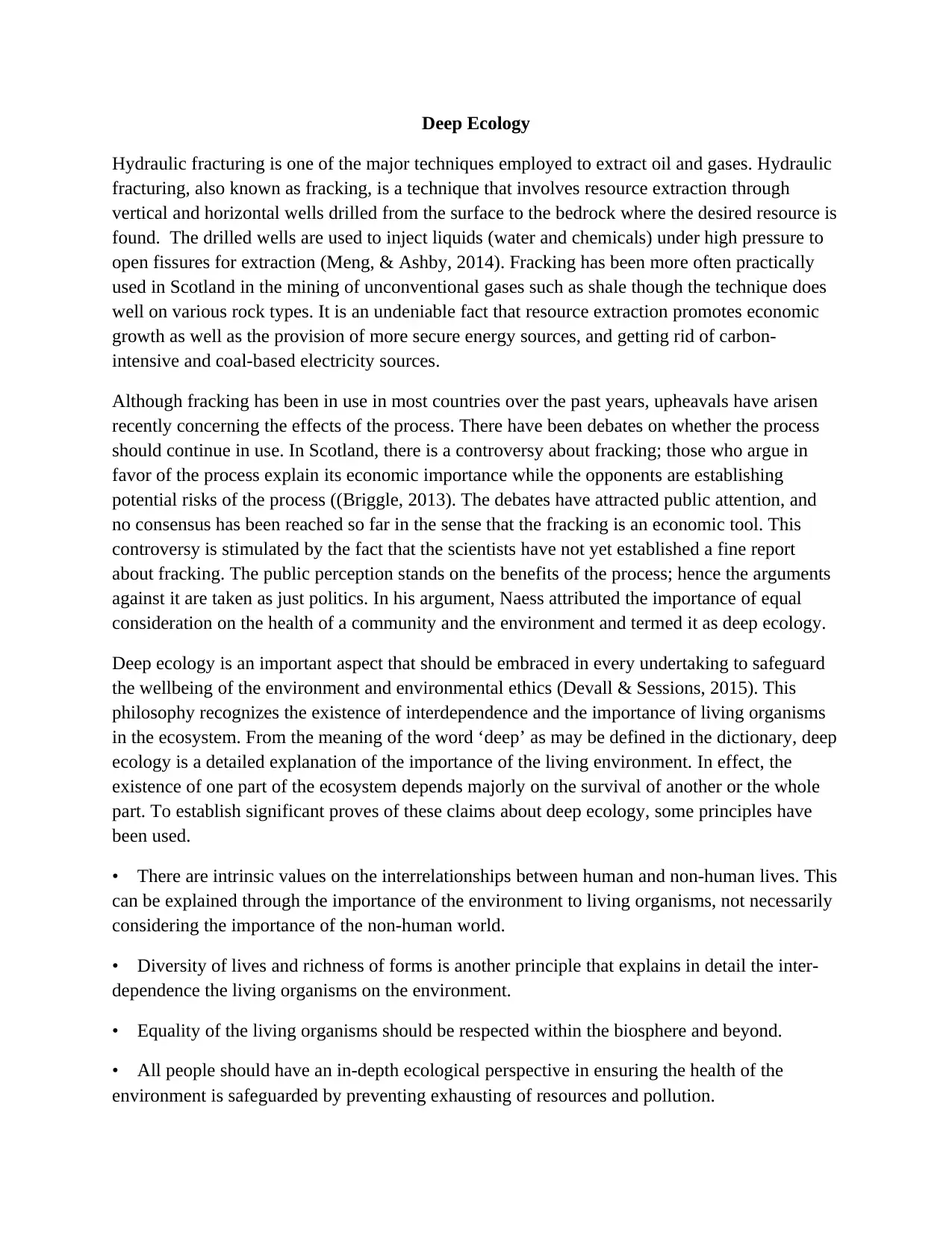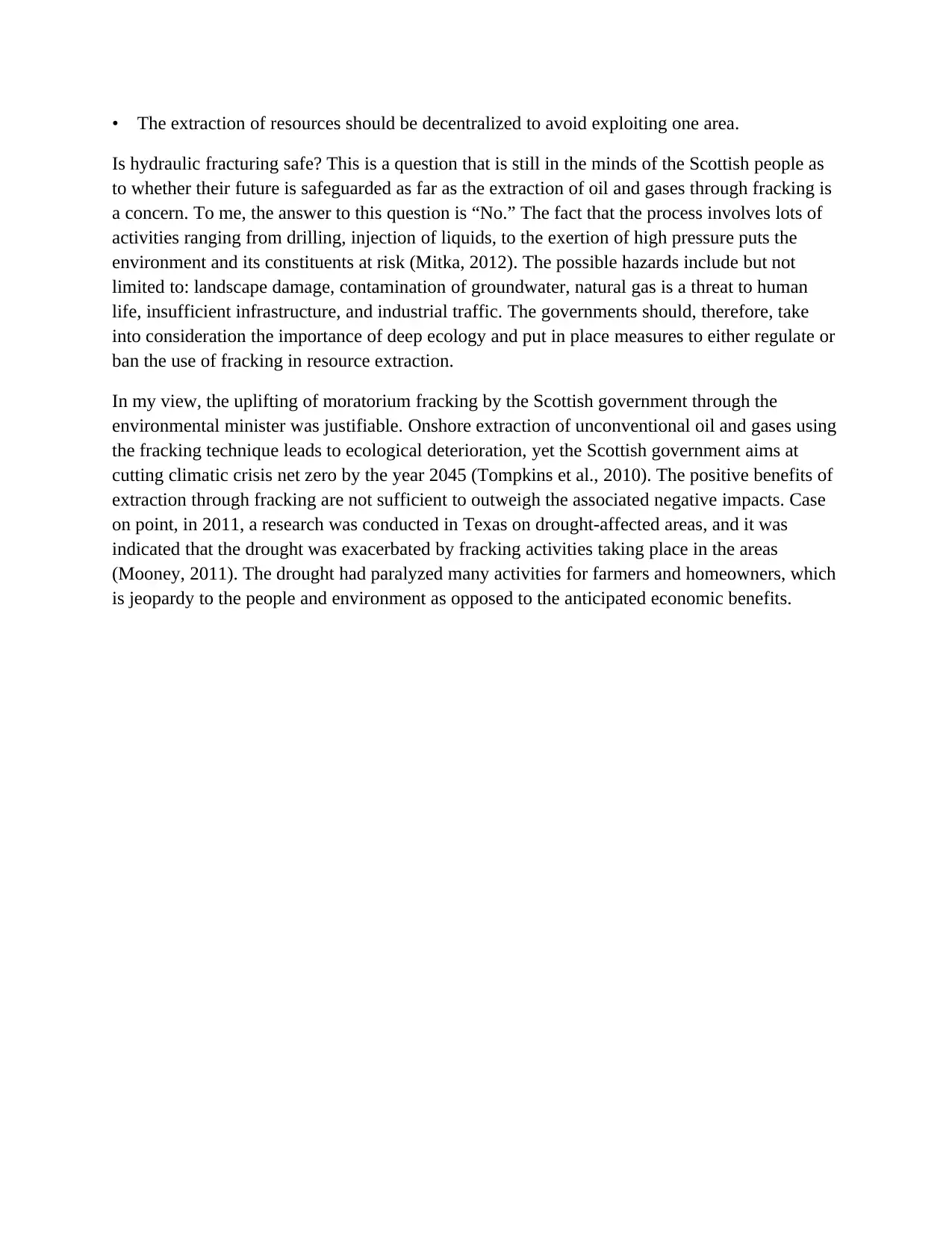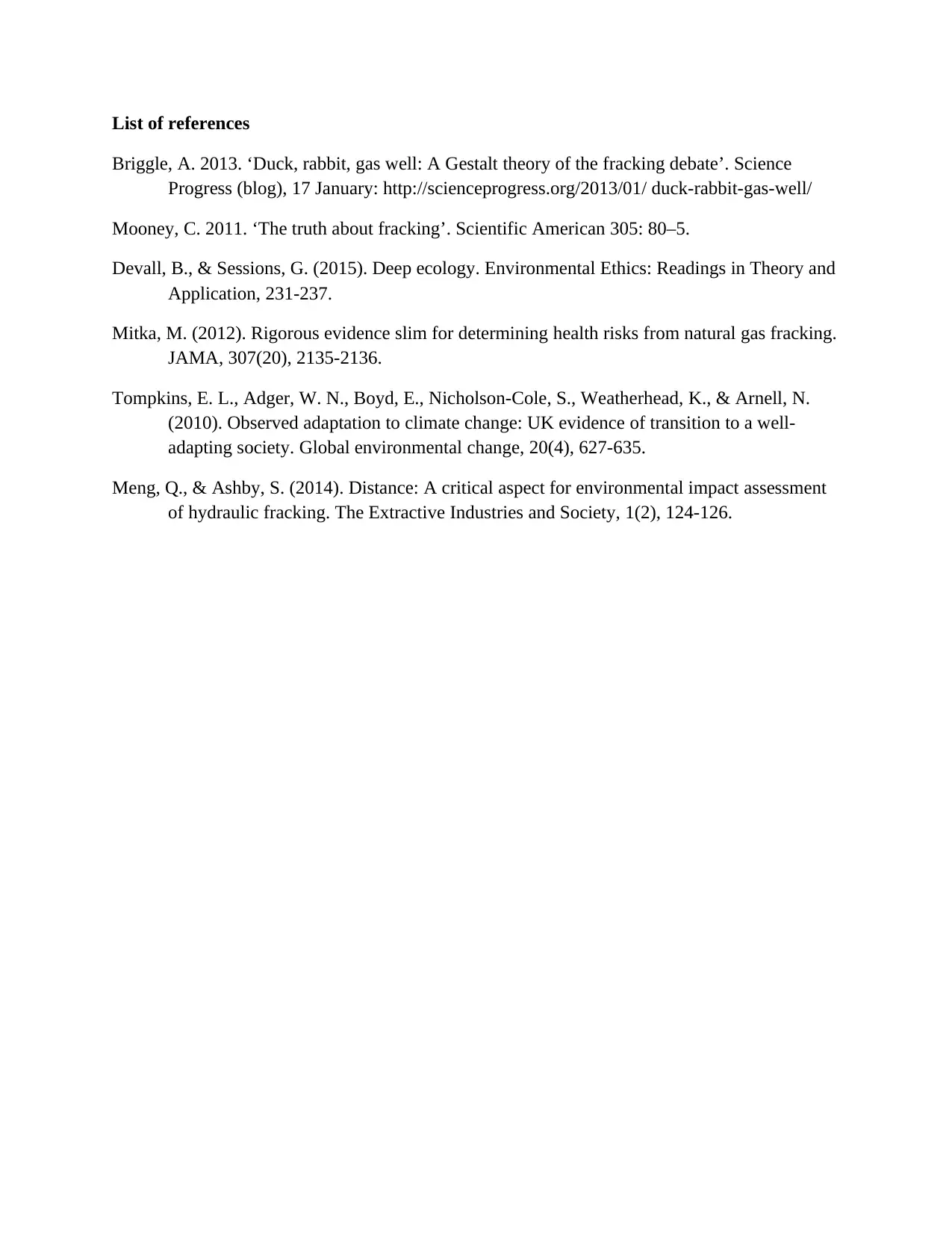Ethical Orientation: Deep Ecology and Fracking in Scotland
VerifiedAdded on 2022/08/15
|3
|1051
|10
Essay
AI Summary
This essay delves into the principles of deep ecology and its application to the controversial practice of hydraulic fracturing (fracking) in Scotland. The author argues against fracking, emphasizing the potential environmental damage and risks to human health, while also advocating for the importance of considering the interconnectedness of all living organisms and the environment. The essay explores the ethical dimensions of resource extraction, highlighting the need to prioritize ecological well-being over short-term economic gains. The author discusses the arguments for and against fracking, referencing relevant research and the Scottish government's stance on the issue. The essay concludes with a call for a more sustainable approach to resource management that aligns with the principles of deep ecology and advocates for the banning or strict regulation of fracking. The essay provides a detailed analysis of the topic, including landscape damage, groundwater contamination, and industrial traffic and emphasizes the need for a shift toward ecological sustainability.
1 out of 3










![[object Object]](/_next/static/media/star-bottom.7253800d.svg)